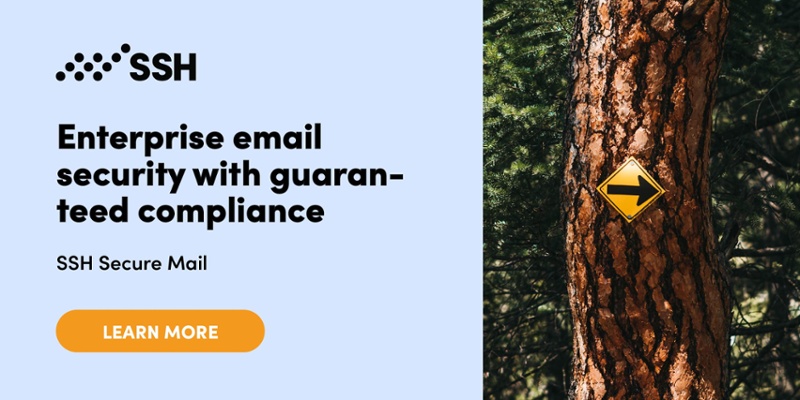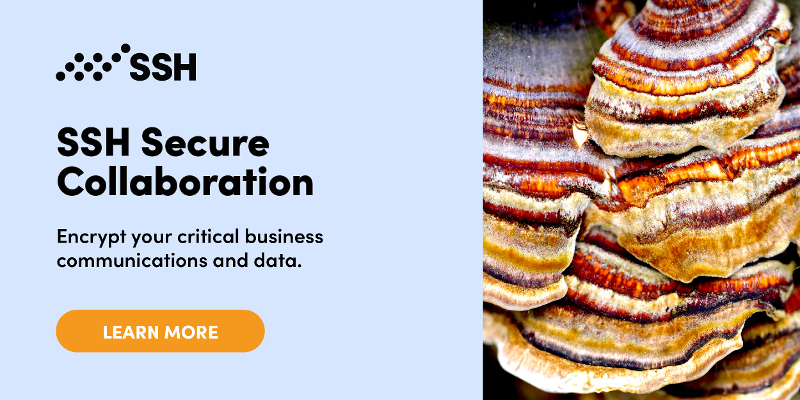Enterprise Email Security
Enterprise email is a critical component of any business communication. At the same time, email remains one of the biggest security attack vectors for organizations of all types and sizes.
During the past couple of years, cyberthreats have become increasingly targeted and more sophisticated cyberattacks have emerged, causing great damage to businesses, organizations, as well as governments. Enterprise email security breaches continue to occur without a sign of slowing down, and with remote work being more common than ever, cybercriminals now have more ways to attack organizations.
In this article, we explore what enterprise email security is, why it is important, how to implement enterprise email security, and what enterprise email security best practices are.
Contents
What is Enterprise Email Security?
Why Do You Need Enterprise Email Security?
Enterprise Email Security Best Practices
Protect Your Organization from Email-Based Threats
What is Enterprise Email Security?
Enterprise email security is a combination of policies, processes, and technologies that help organizations to protect themselves against email-based cyberattacks and ensure that employees don’t fall victim to these attacks. Every organization is in danger of external as well as internal email-born threats equally. Examples of these threats include phishing attacks, spam emails, malware, or data breaches.
When talking about enterprise email security policies, we talk about organization-wide guidance on how to use and communicate via enterprise email. With the goal to secure business email communication from unauthorized access, email security policies describe in detail the processes of email communication within an enterprise and outside enterprise borders, including data sharing of sensitive, highly confidential, or restricted information. Thus, enterprise email security policies also closely relate to data management policies, business data categorization, and data privacy and security policies.
Enterprise email security technologies include standard as well as advanced security tools. Standard email security is usually provided by the organization’s email service provider. For example, Microsoft 365’s email security is maintained by Microsoft Purview, a general, overarching solution aimed at the security of the entire Microsoft 365 package. The standard email threat protections include, for example, attachment scanning, phishing, or scanning of malicious URLs. However, the standard security features are not enough to protect an organization against email-based cyberattacks because they can’t fully mitigate all the risks that enterprise email communications face.
On the other hand, advanced enterprise email security solutions are developed to secure and protect email communications in particular. These include, for example:
- Secure Email Gateways (SEGs)
- Email encryption solutions
- Email Data Loss Prevention (DLP) tools
- Email Sandboxing
- Anti-virus, anti-malware, and anti-spam technologies
Why Do You Need Enterprise Email Security?
Enterprise email is still the primary method of business communication mostly for its ease-of-use and general availability. However, when it comes to security, enterprise email is not as secure as organizations might perceive it to be. Especially when sharing business information with employees, customers, and partners. Sharing sensitive business information via enterprise email makes email a prime target for malicious actors looking to gain access to an organization or harvest valuable data. These malicious actors are not always just externals, they could also be internals, for example, ex-employees whose access was not revoked. Here, the importance of enterprise email security policies and processes comes into play – they should cover external and internal sources.
Without proper enterprise email security in place, third parties can use enterprise email to gain access to sensitive systems, data, and other resources, with the goal to disrupt organization’s data confidentiality, organizational integrity, or availability of the email system. This could lead to, for example:
- Data breaches and leaks
- Financial losses and extra costs
- Non-compliance with data privacy and security laws (e. g. GDPR)
- Failed IT audits
- Loss of customers’ trust
 Enterprise Email Security Best Practices
Enterprise Email Security Best Practices
Enterprise email security should be multi-layered and include several touchpoints to protect email traffic in real time as well as sensitive data or information that is being shared. Enterprise email security best practices include:
Use an enterprise email security gateway
Enterprise email security gateway is the first line of defense that filters out potentially dangerous emails based on the specific settings arranged by an administrator and in line with your enterprise email security policies. Email security gateway prevents malicious emails from reaching employees’ inboxes, so they don’t even get to see them. Like that, they can’t click on malicious URLs or download attachments containing malware or spyware.
Use a comprehensive email encryption solution
Email encryption is basically a process of scrambling a message into a set of numbers, letters, and symbols that are in an unreadable format. So, when the email communication is intercepted, the message cannot be read by an unauthorized unintended recipient. Using an email encryption solution is especially crucial when sending sensitive or confidential information via enterprise email. Email encryption formats include, for example, S/MIME encryption or Transport Layer Security (TLS) protocol.
Most enterprise email security gateway solutions also offer additional email encryption.
Use secure devices only
It is important to use encrypted, trackable, and compliant devices and applications when sharing business-sensitive information via enterprise email. Using unauthorized devices is a serious vulnerability for any organization and could lead to massive fines.
Educate your employees during regular email security awareness training
Organization’s employees are the last line of defense when all other enterprise email security mechanisms fail. They can be trained and educated to recognize social engineering and other types of email-based attacks, how to react to them, and how to avoid them to protect the organization. Employee training should ensure that they are familiar with and understand all enterprise email security policies, processes, and technologies.
Implement secure business communications across the entire organization
Enterprise email security is only a part of business communications security. It is necessary to implement secure business communications across an entire enterprise to ensure that business secrets are protected when shared as well as stored. Secure business communications include not just enterprise email, but also enterprise data management, data storage, secure data sharing, secure data collection, and more.
Implement easy-to-use solutions
Enterprise email security technologies may sound complicated on the inside, however, on the outside, the tools should be user-friendly, intuitive, and easy to use. Like this, it is possible to implement technologies without the risk of employees not using the tools due to their complexity. This is especially important when implementing solutions across the entire enterprise – it is necessary to ensure that even less technical end-users can use the tools.
Protect Your Organization from Email-Based Threats with SalaX Secure Mail
SalaX Secure Mail is an easy-to-use and highly secure email encryption solution that can be embedded in your existing email services to protect confidential email communications. The solution was developed with strict data privacy laws and regulations in mind – regular assessments and product updates ensure that you do not have to worry about compliance ever again.
SalaX Secure Mail provides robust enterprise email security with end-to-end encryption from sender to recipient (S/MIME encryption as well as support for various security protocols like DMARC, DKIM, and SPF).
With SalaX Secure Mail, you are in control of your data, who can access it and how. The solution can be deployed in the cloud or on-premises. You can classify your confidential information, adjust security levels according to your policies, and add extra security features (Like MFA or passwords).
Learn more about SalaX Secure Mail >>>
Start your journey toward enterprise email security and reach out to us to see SalaX Secure Mail in action >>>

